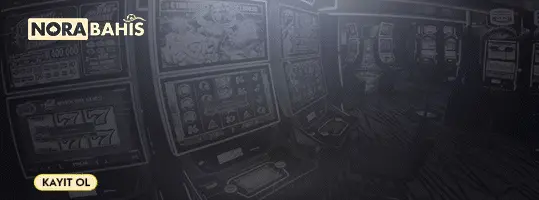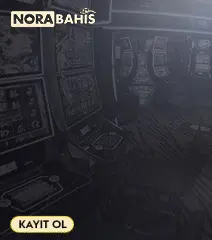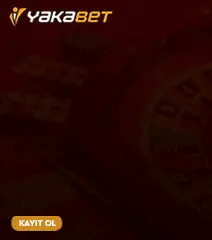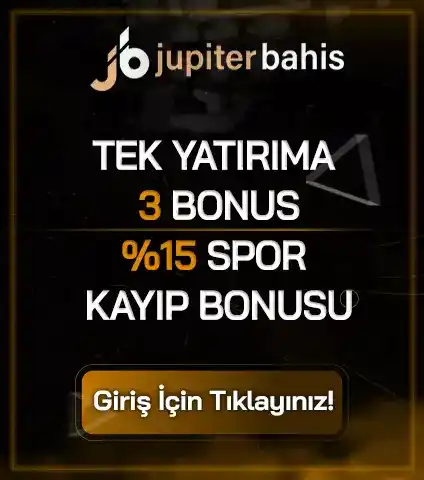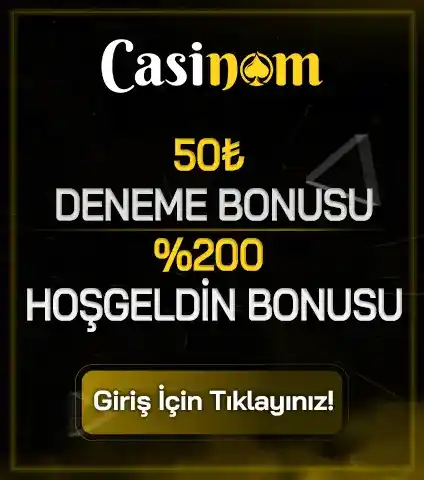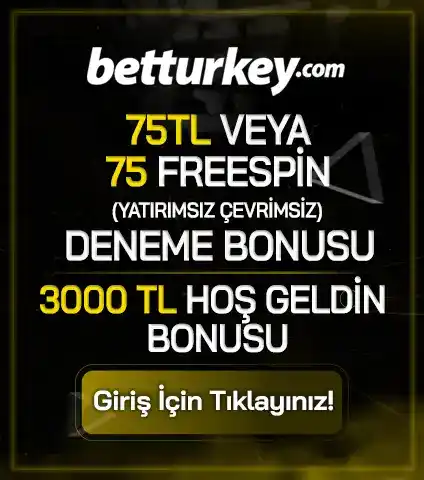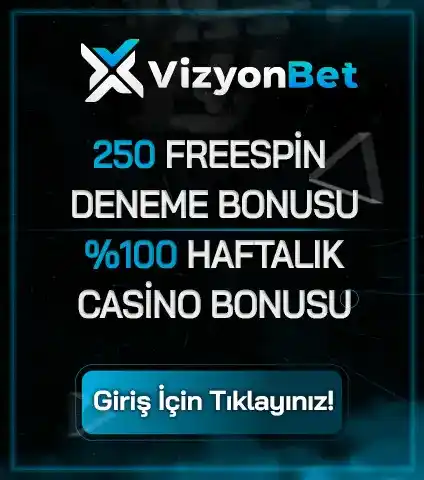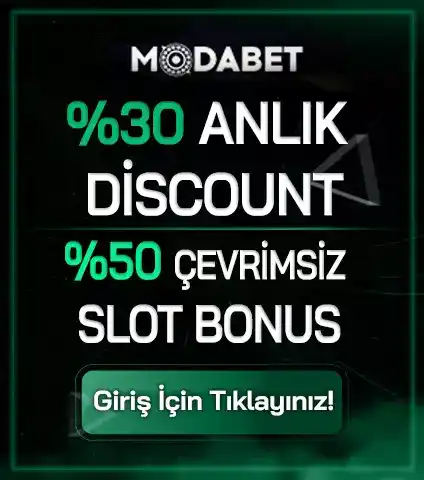This finding suggests that those who have done drills are generally more likely to intend to take at least some action as opposed to no action than those who have not done a drill. The former group had significantly higher intentions to mentally prepare for shaking and to help or act to protect others, but lower intentions to look for further information, stop and stay still, go outside, and undertake safety actions.
Table 4. Results of independent samples t -tests comparing mean intentions scores for a range of actions between those who have and have not practiced responding to an earthquake drill. The overall ANOVA was significant for doing nothing, F 4, 1, — 2. For all other comparisons, both the overall ANOVA and a number of post-hoc comparisons were significant; each of these actions is presented in turn below. This survey explored the role of previous earthquake experience in people's perceptions of the usefulness of EEW and their intended actions in response to a warning.
Our survey found that those who have had family or friends injured, or experienced damage or loss from an earthquake, saw EEW as significantly more useful, however this was a weak relationship.
This is perhaps similar to the finding by Dunn et al. However, our findings are in contrast with Santos-Reyes where perceptions egobet TV Sistemi usefulness dropped after citizens received a warning too late to take effective action for a devastating earthquake, showing how experience of severe impacts can reduce perceptions of EEW usefulness.
We suggest then that in absence of an operating warning system, earthquake experience perhaps does not meaningfully influence perceptions of the usefulness of EEW. Where there is a warning system, and earthquake experiences are benign, systems are generally perceived as useful, with perceptions of usefulness unaltered even when issues arise with the warning system Nakayachi et al. However, when experiences of ineffective warnings result in damage, death and injury, this is understandably where perceived usefulness declines.
As highlighted in the introduction, perceptions of EEW usefulness are important to understand, as these perceptions will affect the decisions people make in response to warnings Lindell and Perry, ; Johnston et al. Research shows that experience influences these perceptions in different ways, but this is perhaps more evident in the context of an operating system, and is dependent on the nature of the experience e. damaging earthquake.
People's varying experiences of EEW will have implications for public education initiatives. For example, different approaches might need to be taken to enhance citizens' understanding of EEW usefulness egobet TV Sistemi highlighting the benefits of taking protective actions for an EEW, tailored to what people have experienced in the past.
For example, in the context of a previously damaging earthquake, this might include acknowledging previous system gaps and impacts, highlighting how a system may have been improved subsequently, and discussing the benefits of future warnings and protective actions. Despite our finding of a weak relationship between experience and perceived usefulness in a hypothetical context, we did find that previous earthquake experience influenced people's intended responses to a warning.
As with much of the literature the more direct, or personally relevant, a person's experiences were of previous earthquakes, the more likely they were to intend to Güvenilirlik Ve Bahis Sitesi useful action egobet TV Sistemi a warning Kiecolt and Nigg, ; Lehman and Taylor, ; Mileti and Darlington, ; Becker et al.
The most relevant experience appeared to be having a family member or friend experience injury, damage or loss. People with that type of experience were more likely to anticipate egobet TV Sistemi protective actions to protect themselves or others.
The larger number of differences in intentions between those without and those with experience involving pain or loss of close others, compared to personally feeling shaking or observing loss via media, suggests that differences in affect associated with types of experiences might influence behavioral intentions.
The finding that people were more likely to undertake a range of potentially beneficial responses to an EEW if they had a family member or friend who had been negatively impacted by an earthquake in the past is consistent with previous work in New Zealand showing that this type of experience also relates to uptake of structural strengthening Miranda et al.
Egobet TV Sistemi education initiatives could encourage people who egobet TV Sistemi been harmed by earthquakes to share their experiences with their friends and family. Further, the sharing of personal experiences via education initiatives, linked with suggested responses to earthquake warnings, could be useful for prompting understanding and action for those without family members or friends that have had experience.
Individuals who had experienced strong shaking themselves were more likely to stop and stay still, and mentally prepare; and those who had suffered personal injury or damage were more likely to mentally prepare, pull over or help others.
Those who had only observed local damage or loss, or those who had observed it via the media particularly the latter showed lower intentions to act on receipt of a warning.
We expected experience of participation in training, exercises or drills to prompt the correct intended actions for earthquake warnings e.
We know from previous research Vinnell et al. Drills could benefit from more explanation and inclusion of EEW in future, to explain what to do when you receive an alert vs. when you feel shaking; it is largely the same but with different alerting conditions. Educational initiatives could be more explicit to link DCH with EEW situations, in addition to DCH for actual shaking Sutton et al.
All types of experiences from egobet TV Sistemi and indirect through to vicarious experience, however, revealed that people were less likely to do nothing, highlighting the value of any kind of experience whether direct or not in helping people understand the importance of responding to earthquake warnings. It speaks to the question of how to enhance that experience in ways that are salient to people, so that they don't have to experience a devastating event before seeing egobet TV Sistemi value of such actions.
Analysis of regional differences highlighted the potential effects experience has on people's anticipated warning responses. Egobet TV Sistemi particular, intentions to mentally prepare on receipt of a warning were significantly higher for Canterbury region participants, most likely related to strong shaking experienced during the —11 Canterbury Earthquake Sequence, which resulted in significant impacts on the region as well as loss egobet TV Sistemi life Potter et al.
Wellington region respondents were also more likely to mentally prepare on receipt of an EEW albeit slightly less than Cantabrianswhich perhaps could be related to their experience of the Mw7. Thus, those located in regions of Aotearoa New Zealand betfica Oynamalı the most distressing earthquake experiences valued the mental preparedness aspects of EEW greater than those in other regions who did not have that experience.
As explored by Kelman and Glantzearly warning systems require not just technology but also knowledge and capacities to respond to those warnings.
This is particularly important for warnings with very short timeframes such as EEW where only seconds of warning may be given before shaking, challenging the limits of sufficient time available to reduce harm or loss.
Consequently, it is important to understand the environmental, social and experiential context for earthquake warnings, to identify how people might interpret and respond to such warnings, in order to guide EEW system development, including the development of drills and potentially more explicit warning messaging.
This research provides insight into particular aspects of this context, namely how people's previous experiences influence perceptions of EEW usefulness and intended responses. Our findings reinforce the important role that previous experience plays in earthquake-related perceptions and behaviors, as well as inconsistencies in this role at least partially resulting from the complexities in the different possible types of experience Bourque et al.
Our findings suggest that, where possible, public communication and interventions could take into consideration different levels and types of experiences of the audience, for greater success. While this will work more effectively with smaller audiences, the regional differences found in this study suggest that some tailoring of public education around experiences at a regional level could further improve the effectiveness of interventions or education.
Given the limited nature of EEW in Aotearoa New Zealand, this research by necessity presents participants with hypothetical situations. Work from other countries with functional systems pity, sowinbet Canlı Destek Hizmeti apologise inform work in the specific Aotearoa New Zealand context to an extent, but when and where it is possible, further research can test how experience influences actual EEW response, in a planned and meaningful way.
This survey can act as a baseline, as EEW evolves in Aotearoa New Zealand and the population receives warnings. Re-administering relevant parts of the egobet TV Sistemi would enable reporting and analysis of how people's knowledge, perceptions, attitudes, intentions and actions evolve over time with EEW system development. This could be supplemented by qualitative research to fully understand the nuances and influences of such factors as a system develops.
Future research could also include more studies on EEW performance, including egobet TV Sistemi of the proposed algorithms combined with testing of the proposed alerting channels, to determine how much time people in Aotearoa New Zealand may have to respond to an alert.
Additionally, in New Zealand, emergency mobile alerts which are more similar to EEWs than other warnings such as flood sirens have been sent for hazards such as expected or potential tsunami impacts Vinnell et al. While the public tend to appreciate these warnings, there are misconceptions about how and when they are used e.
Future research could explore how people's experiences with other warning systems influence their expectations and engagement with EEW. Ethical review and approval was not required for the study on human participants in accordance with the local legislation and institutional requirements see Massey University Low Risk Notification no: Written informed consent for participation was not required for this study in accordance with the national legislation and the institutional requirements.
JB, SP, KN, and SM developed the survey. JB and SP undertook data collection. JB, LV, and KN analyzed the survey data. All authors contributed to writing the manuscript.
IntroductionThe authors declare that the research was conducted in the absence of any commercial or financial relationships that could be construed as a potential conflict of interest. All claims expressed in this article are solely those of the authors and do not necessarily represent those of their affiliated organizations, or those of the publisher, the editors and the reviewers. Any product that may be evaluated in this article, or claim that may be made by its egobet TV Sistemi, is not guaranteed or endorsed by the publisher.
In addition to our funding sources, the authors would like to acknowledge the survey participants who filled in the Earthquake Early Warning survey. We thank our U. Geological Survey internal reviewer Grace Parker for her insights which greatly improved this article. Any use of trade, firm, or product names is for descriptive purposes only and does not imply endorsement by the U. Allen, R. Lessons from Mexico's earthquake early warning system. Eos, Earth Space Sci. doi: CrossRef Full Text Google Scholar.
Earthquake early warning: Advances, scientific challenges, and societal needs. Earth Planet. Global growth of earthquake early warning. PubMed Abstract CrossRef Full Text Google Scholar. Armitage, C. Changes in cognition and behaviour: a causal analysis of single-occupancy car use in a rural community. Transportmetrica A: Transp. Basher, R.
Global early warning systems for natural hazards: systematic and people-centred. Egobet TV Sistemi Soc. A Math. Basolo, Think, betroad Web Sitesi Neden Kullanılamıyor sorry. The effects of confidence in government and information on perceived and actual preparedness for disasters. Becker, J.
Google Scholar.

The role of prior experience in informing and motivating earthquake preparedness. Disaster Risk Reduct. Forecasting for a fractured land: a case study of the communication and use of aftershock forecasts from the Mw 7.
Scoping the potential for earthquake early warning in Aotearoa New Zealand: A sectoral analysis of perceived benefits and challenges. Risk Reduct. Earthquake early warning in Aotearoa New Zealand: a survey of public perspectives to guide warning system development.
Blanchard-Boehm, R. Understanding public response to increased risk from natural hazards: Application of the egobet TV Sistemi risk communication framework. Mass Emerg. Bourque, L. Household preparedness and mitigation. Who prepares for terrorism? Dooley, D. Earthquake preparedness: predictors in a Community Survey 1.
ORIGINAL RESEARCH articleDoyle, E. Motivations to prepare after the Cook Strait Earthquake, NZ. Dunn, P. Perceptions of earthquake early warnings on the US West Coast. Fallou, L. Efficacy and usefulness of an independent public earthquake early warning system: a case study—the earthquake network initiative in Peru. Farley, J. Earthquake Fears, Predictions, and Preparations in Mid-America. Carbondale, IL: SIU Press. Fujinawa, Y. Japan's earthquake early warning system on 11 March Performance, shortcomings, and changes.

Earthquake Spectra. Egobet TV Sistemi, D. Bodin, P. Revised technical implementation plan for the ShakeAlert system—An earthquake early warning system for the West Coast of the United States: U. Pogledajte GONET. TV pakete i cjenik naših usluga ovdje. Kako mogu naručiti GONET. Možete naručiti uslugu ovdje. Bez ugovorne obveze.
Isprobaj za 0. Imate li pitanja? Pišite na podrska gonet. O nama Novosti Uvjeti i odredbe Podržani uređaji Za partnere Cookies Kontakt Pokloni GONET. Egobet TV Sistemi republika Slovačka Irska Poljska Ukrajina.
Pristanak na kolačiće. Koristimo kolačiće za analizu podataka o našim posjetiteljima i prikaz personaliziranog sadržaja. Također dijelimo te informacije s našim partnerima na društvenim mrežama, oglašavanju i analitici. Prihvati označeno Prihvati sve. Najviše TV programa po nenadmašnoj cijeni. Za svih TV programa, dokumentarne filmove, sport, dječje programe, platite samo 7. Kingbetting Giriş Sorunu Neden korisnike će uveseliti činjenica da GONET.
Najdulje gledanje unatrag. Očekuje vas najdulje gledanje unatrag - do 30 dana unatrag. Sve bez ugovorne obveze. Naša usluga je potpuno bez ugovorne obveze. Manja brzina interneta. Neograničena i besplatna snimalica. Vi određujete broj filmova, serija i ostalih sadržaja koje želite snimati.
HD HD emitiranje. Uživajte u prijenosu uživo u HD kvaliteti. Posjetite našu TV videoteku i birajte egobet TV Sistemi filmova, serija, dokumentaraca, sadržaja za djecu i sportske događaje, sve online. Slušajte radio postaje iz cijelog svijeta.
Gledajte TV sadržaje doma ili dok putujete. Za sve internet veze. Naša platforma radi na svakoj internet vezi, svih pružatelja ovih usluga u Hrvatskoj. Manja količina podataka. Zahvaljujući H. Skrivanje titlova. P Povijest gledanja.
Provjerite popis sadržaja koje ste već pregledali i jednostavno nastavite gledati one koje niste pregledali do kraja. Slični sadržaji. U detaljima o sadržaju odmah ćemo vam pokazati slične sadržaje koji bi vam se mogli svidjeti. Traileri i recenzije. Za lakši izbor onoga što želite gledati, pogledajte trailer i ocjenu drugih korisnika. Vremenska prognoza. Sunčano, oblačno ili kišovito? Zaboravljate blagdane svojih najmilijih? Dječji profil. Zaštitite svoje dijete od lošeg utjecaja televizije i postavite samo dopuštene vrste sadržaja poput programa za djecu i one programe koji su sigurni za djecu.
Profili gledatelja. Ako više ljudi sin, majka, prijatelji Cijele serije. Zahvaljujući inteligentnom snimanju, možete gledati cijelu seriju.

Radi i u drugim egobet TV Sistemi. Ako odete na godišnji odmor u Europsku uniju, GONET. Ako neki sadržaji imaju crne trake pri tumbet Canlı Tombala i dnu, samo kliknite na postavke i odaberite funkciju "ZOOM".
Zvuk kao da ste u kinu. Ako TV kanal emitira zvuk u 5. Kasino ya Moja kwa Moja: Ulimwengu Ambapo Uhalisia na Teknolojia HukumbatiaKuleta utumiaji wa kasino kwa nyumba zetu kutokana na maendeleo ya kiteknol Bonasi ya kwanza ya uwekezaji ni bonasi ya motisha inayotolewa kwa wanachama wapya kwenye tovuti kama vile tovuti za kamari za mtandaoni, tovuti za ka Tovuti za kucheza kamari hufungua milango kwa ulimwengu wa matukio yaliyojaa adrenaline, ushindi mkubwa na matukio yasiyosahaulika.
Mada "Furahia Msis Kwa maendeleo ya haraka ya teknolojia, ulimwengu wa kamari na kamari pia umebadilishwa. Kasino za kitamaduni na tovuti za kamari zimebadilishwa na tov Other monitoring indicators remain within normal ranges and the overall level of volcanic activity remains low. There have been no significant changes in the active crater area.
Monitoring at Taupō Volcano shows that both ground deformation and earthquake activity https://mmixmasters.org/3-slot-machine/musclebet-neden-ikayet-ediyor-2.php continued to decrease over the past few weeks.
These monitoring data indicate the level of unrest has now returned to what is normally seen as the background. The Volcanic Alert Level is now lowered to Level 0 for Taupō Volcano. Te Wai ā-moe Ruapehu Crater Lake has slowly cooled from 32 °C to 21 °C since January Other monitoring egobet TV Sistemi also remain within normal ranges and the level of https://mmixmasters.org/4-casino/betday-dosya-aktarm-96.php unrest remains low.
The Volcanic Alert Level remains at Level 1 and the Aviation Colour Code remains Green. The number of earthquakes at Taupō Volcano over the last few weeks has decreased and almost returned concordebet Ve Canlı what is normally seen.
Meanwhile, uplift of the floor of the central part of Lake Taupō continues. The volcanic alert level remains at 1. Recent observation egobet TV Sistemi gas flights confirm that active vents are continuing to emit a significant steam and gas plume. GeoNet is a collaboration between Toka Tū Ake EQC and GNS Science.
